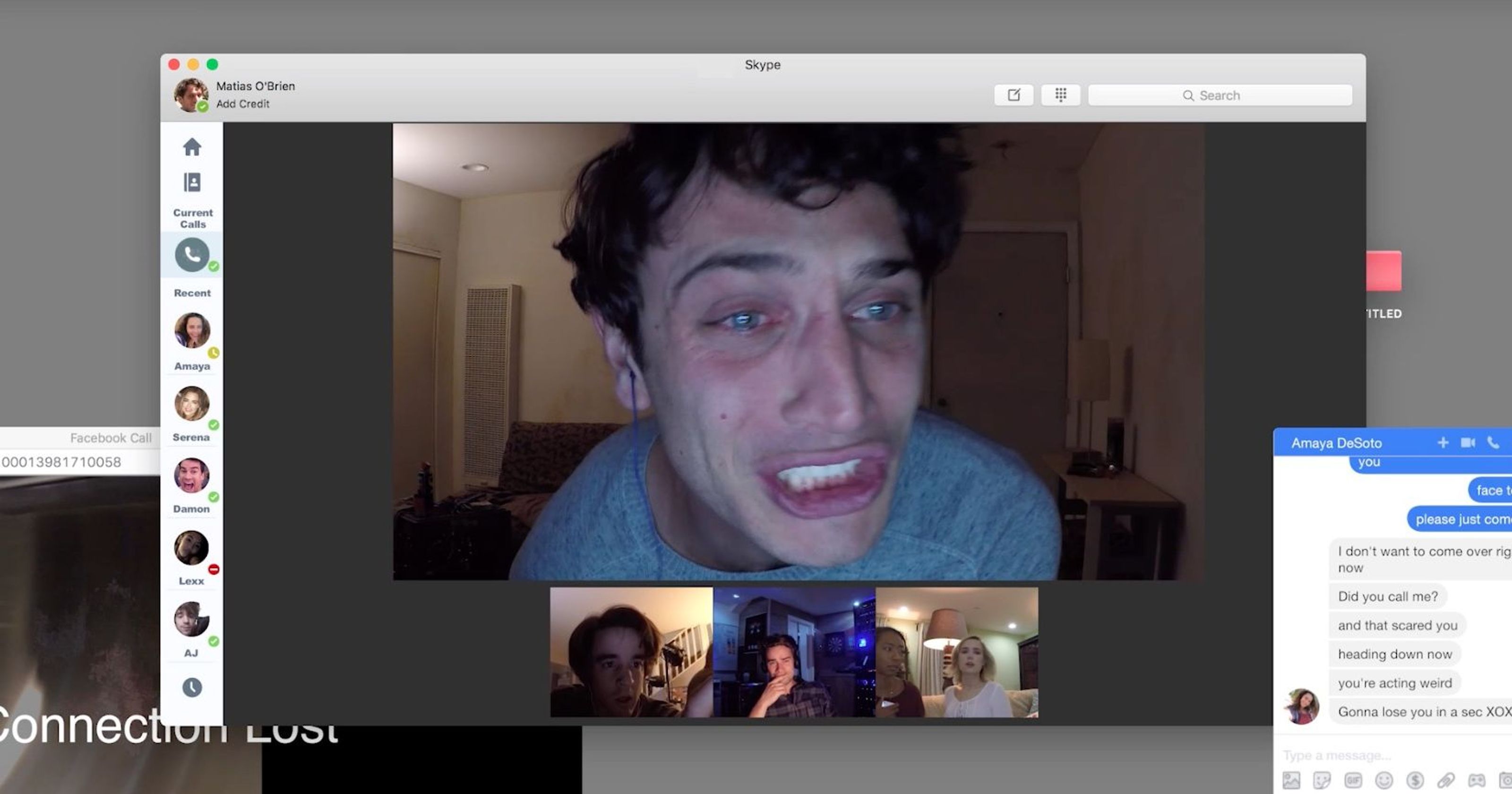
Unfriended: Dark Web
Dustin Chase
Is “Unfriended: Dark Web” a sequel to the 2016 movie D-grade flick, “Friend Request”, or did I miss another one of these cheap, shoe string budget, forgettable flicks with no actors? Regardless, like the similar ones before it, this one too plays out on a laptop screen in which the viewer watches various online social media interactions wrapped around a ghostly, suspenseful plot. “Unfriended: Dark Web” is the same concept with different characters and a different plot. The original scored $32 million in box office returns on a $1 million-dollar budget. It feels grossly inaccurate even using the term “movie” to describe “Unfriended: Dark Web;” this is gimmick filmmaking pure and simple. It’s 88 minutes of your life you will never get back, spent with performers who can’t act, and characters you would rather avoid.
Matias (Woodell) loves Amaya (Nogueras). Amaya is deaf. Matias steals a laptop to build a sign language program so he can better communicate with Amaya. Amaya is angry that Matias would rather waste time building a program than taking a sign language course. The stolen laptop belongs to Charon IV of the Dark Web, who is involved in murder, torture, and kidnapping. Naturally, Charon wants his laptop back. Matias and all his friends are Skyping game night when they learn what Matias has done and what he’s up against. They will all die if he doesn’t return the laptop. Instead of doing something about their situation, the friends all sit in front of their laptop and talk about the predicament. They all get what’s coming to them.
Gimmick filmmaking pure and simple.
The most impressive element of “Unfriended: Dark Web” is how they make 88 minutes feel like three hours. Let’s start with the acting: Colin Woodell (an extra in “The Purge” and “Unsane”) certainly wasn’t cast for his closeup appeal. Woodell is the star of the film, getting the most “face time,” but suffers from performance errors. Often when inexperienced newcomers are asked to deliver a “just be yourself” performance, the results amount to over-acting.
Steven Soderberg’s “Unsane” (which was actually good) aside, these types of films are the cinematic equivalent of today’s reality trash TV. Cheap movie projects designed to turn a quick profit and be instantly discarded. Even with a short running time, computer errors, glitchy white noise moments are used as filler, and even worse, editing transitions for the film. “Unfriended’s” other problem, like its predecessor, is that using so much of the latest lingo and evolving technology will instantly date these movies in the years to come. It is mind-boggling that people will pay $12+ dollars to see something like this on a big screen, while remarkable cinematic masterpieces can barely be found in mainstream cinema.
Final Thought
Calling “Unfriended: Dark Web” a “movie” is a distinction it doesn’t deserve.
